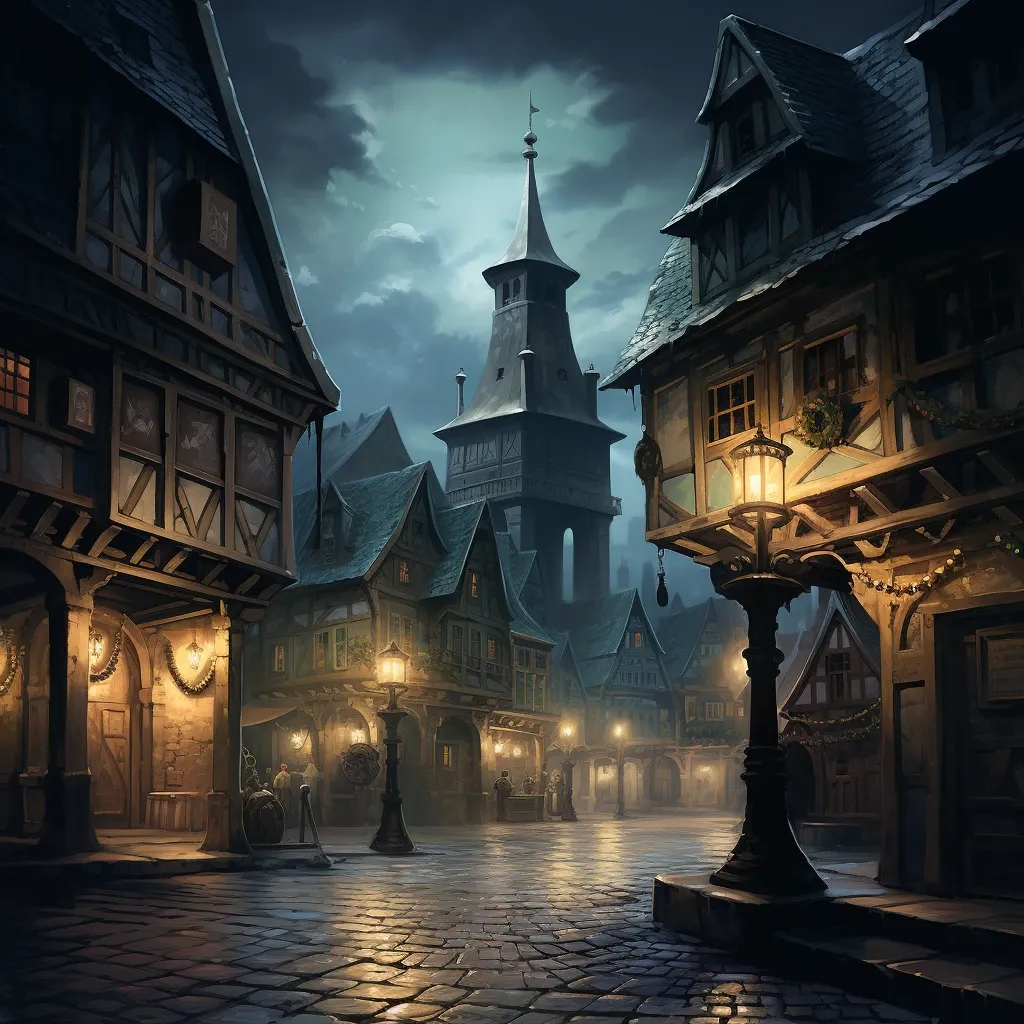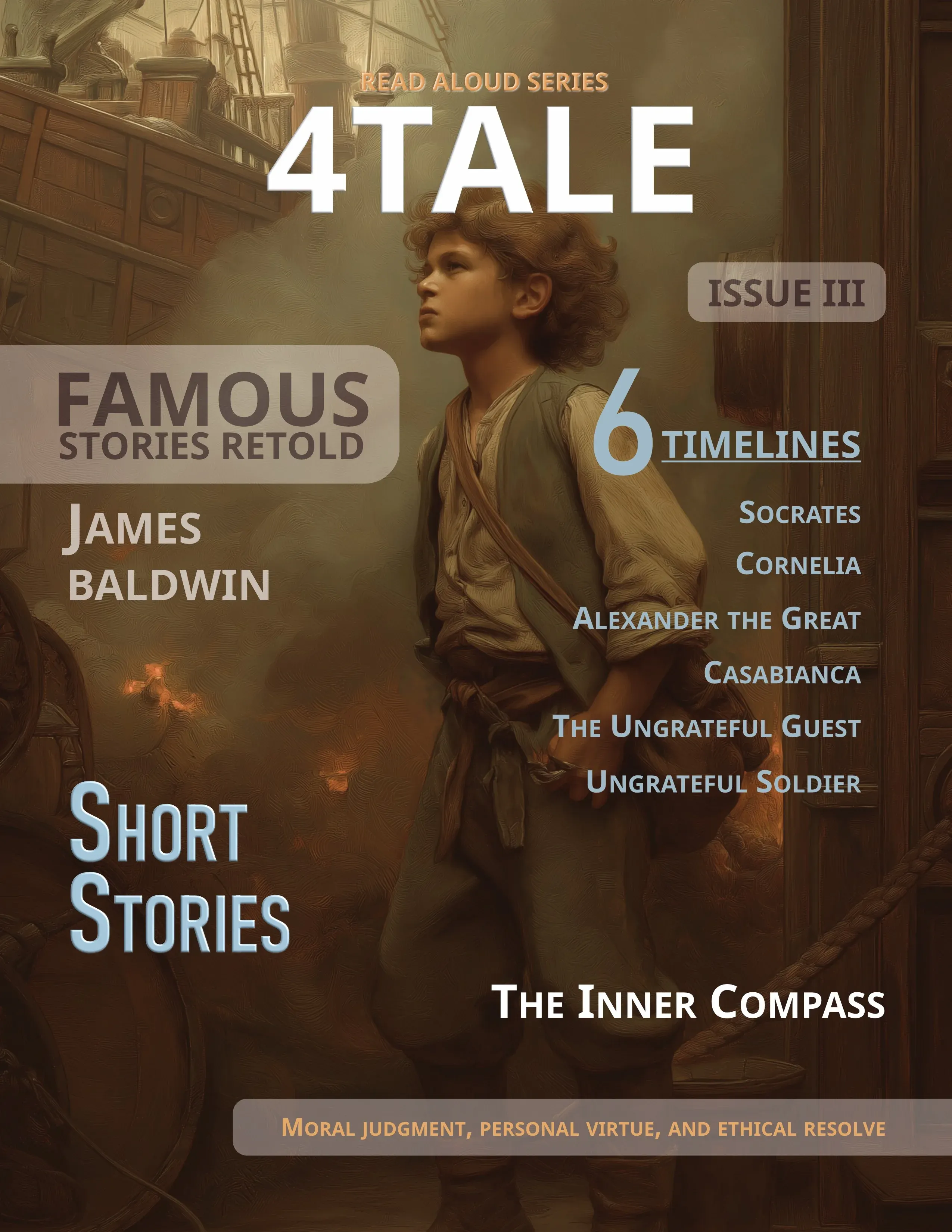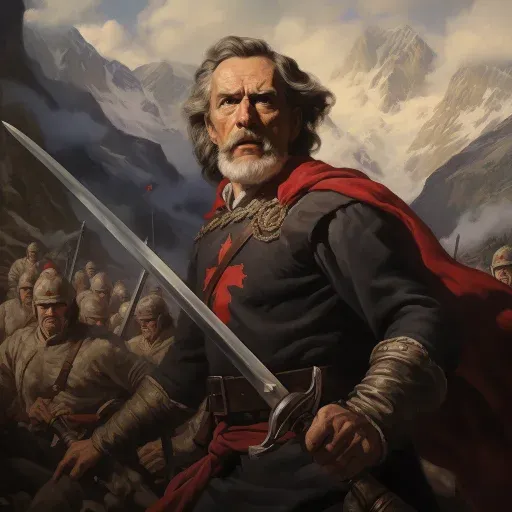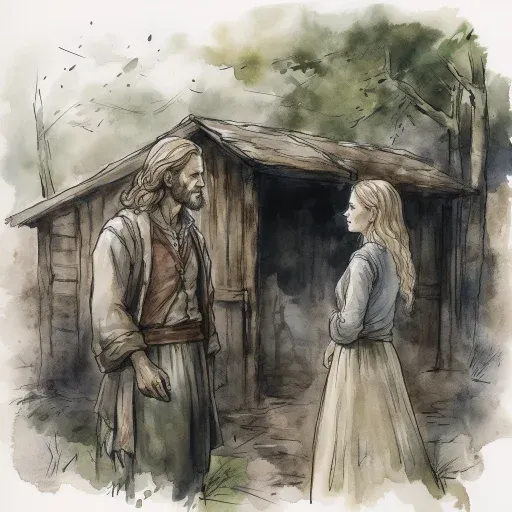
Heading

Old Horse: An old, mistreated horse rang the bell by pulling on the grapevine attached to it, seeking justice against its cruel owner.
King’s Judgment: The king ruled that the miserly owner must take care of the horse properly, symbolizing the triumph of justice.
A good book we like, we explorers. That is our best amusement, and our best time killer
- Roald Amundsen, Explorer
Atri's Justice Bell: A Tale of Righteousness from Italy
Nestled in the heart of Italy, the small town of Atri conceals a legendary tale of justice and mercy that resonates through the ages. This captivating narrative revolves around a magnificent bell, a symbol of righteousness that forever changed the course of the town's history. Its chimes were not mere sounds, but a call for justice, a voice for the voiceless. Intrigued? Prepare to journey through time and witness how the echo of a bell transformed a society, reinforcing the idea that no wrong shall go unpunished, and no creature, however humble, shall endure injustice.
The Origins of the Justice Bell
In the ancient town of Atri, nestled halfway up a steep hill in Italy, a significant historical event took place. This charming town, with its quaint marketplaces and cobblestone streets, was home to a unique symbol of justice - a large, beautiful bell. Purchased by the town's king, it was hung in a tower in the center of the marketplace. Every citizen, from the smallest child to the eldest elder, could ring the bell, thanks to a long rope that reached almost to the ground. This bell was more than just a piece of bronze; it was a beacon of justice for the people of Atri.
The King's Proclamation and the Bell's Purpose
While the bell itself was impressive, the purpose it served was even more noteworthy. The king, rather than ringing the bell himself, declared it to be the "Bell of Justice". He announced that any citizen who felt wronged could ring the bell to call the town's judges who would then hear their case and dispense justice. This bell was not a plaything or a mere decoration; it was a tool for the promotion of justice and equality, and it was available to all, regardless of their social status or wealth.
Podcast
Years of Justice Served by the Bell
True to its purpose, the bell served as a call to justice for many years. Each time the bell rang, a wrong was righted, a grievance was heard, and justice was served. Over time, the bell's rope became frayed and worn from constant use. It shortened until only a tall man could reach it, prompting concerns among the judges. They worried that a child who was wronged wouldn't be able to reach the rope and ring the bell. Their commitment to justice was so strong that they ordered a new rope to be attached to the bell, ensuring that it remained accessible to all.
The Need for a New Bell Rope and its Provision
As the decades passed, the bell of justice continued to ring out across Atri. Its toll echoed through the streets, calling the town's judges to assemble and dispense justice. The bell's rope, however, began to show the weight of the years. The hempen rope gradually wore thin, fraying at the end and becoming too short for the town's children to reach. The judges of Atri, concerned that a child wronged would be unable to summon them, ordered a new rope to be affixed to the bell.
Yet, there was no suitable rope to be found in Atri. The necessary length of rope would have to be brought from beyond the mountains, a journey that would consume many days. This left the town in a predicament - what if injustice occurred before the new rope arrived? A man of Atri, standing nearby, offered a solution. He returned quickly from his garden with a long grapevine, which he tied to the bell. The vine trailed to the ground, allowing even the smallest child to reach it. The judges agreed to this temporary fix, ensuring the bell remained accessible to all.

The Miser and his Neglected Steed
Away from the town center, on a hillside overlooking Atri, there lived a former knight. Once celebrated for his bravery, he had grown old and reclusive, his heart hardened by greed. He had sold off all his possessions, save for his horse. This noble steed, having served its master faithfully throughout the years, was now left neglected and starving in a bare stall. The miser saw no value in its upkeep, considering it a drain on his gold reserves. One day, he decided to abandon the horse, leaving it to fend for itself on the barren hillside.
The horse, once strong and noble, was now a pitiful sight. It roamed the dusty roads and rocky hillsides, scavenging for food and enduring the harsh treatment of those it encountered. The town's people watched as the former warhorse was reduced to a pathetic, starving creature, left to the mercy of the elements and the cruelty of others.
The Bell Rings for Justice: The Horse's Tale and the Miser's Judgment
One stifling afternoon, the horse wandered into the deserted market place. The vines hanging from the bell of justice provided a tempting meal for the starving horse. As it tugged at the vines, the bell began to ring, calling forth the judges and townspeople to the scene. The people of Atri were shocked to find the horse at the bell, effectively asking for justice.
The judges, seeing the emaciated state of the horse, declared that it had indeed been wronged. The miser was summoned and the judges declared their verdict. Half of the miser's fortune was to be used to provide for the horse, ensuring it had a comfortable stable and ample food for the rest of its days. The miser, forced to part with his beloved gold, hung his head in shame, while the people of Atri celebrated the victory of justice. The horse, the silent victim, had summoned the bell and justice had been served.
Conclusion
The tale of Atri's Justice Bell is a timeless testament to the triumph of justice and the enduring spirit of righteousness. The bell's resonating chimes, echoing through the ages, remind us that no cry for fairness, however faint or feeble, goes unheard. This narrative continues to reverberate in the heart of every Italian and beyond, affirming the inherent dignity of all creatures, and the inalienable right to just treatment. So, let us remember the horse and the miser, the vine and the bell, and let their story inspire a pursuit for justice in our own lives.





